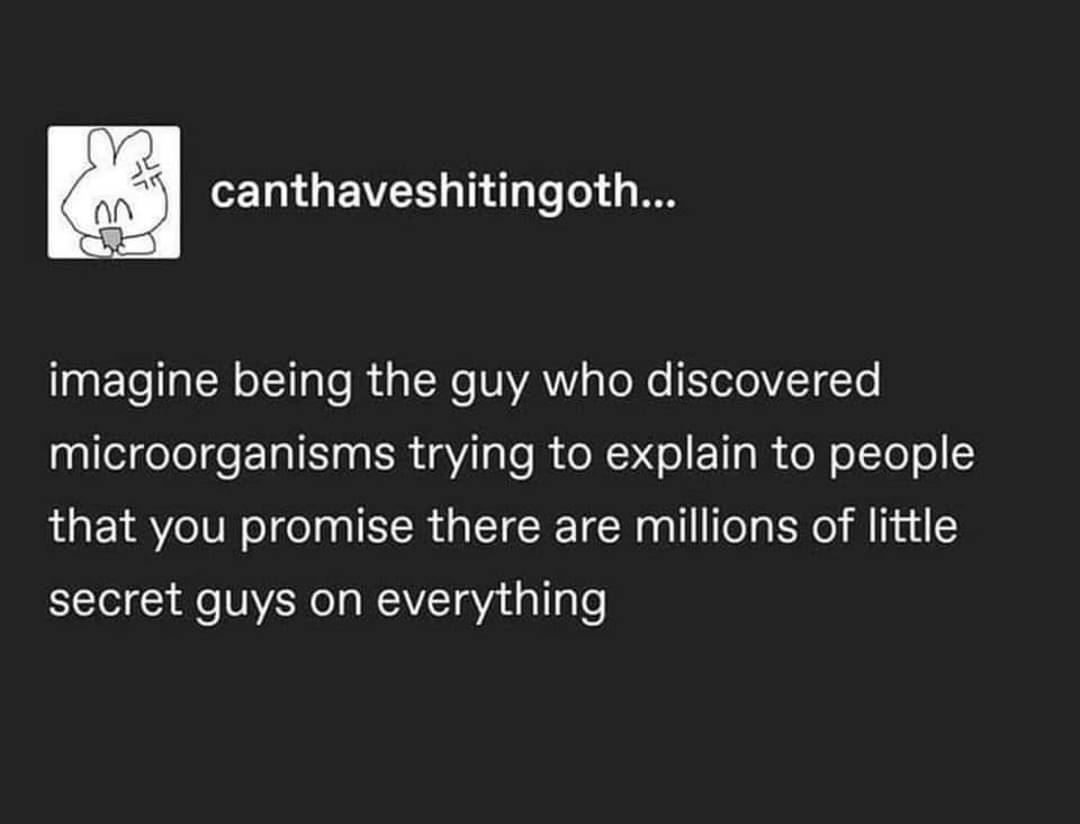His name was Ignaz Semmelweis, and they threw him in a mental institution. He was trying to get doctors to wash their hands in between handling corpses and doing surgery, and they got super offended about it.
Edit: I AM LYING! Partly. Semmelweis discovered illnesses caused by bacteria, but he didn't understand that they were caused by microbes, or the mechanism at work. He just was able to piece enough of it together to test empirically that if the doctors washed their hands, then people didn't get sick in the same way that they did if the hands had corpse-goo on them. Linking him to specifically understanding that tiny little creatures were everywhere was a little bit misleading thing for me to do.
Also, they were usually delivering babies, not doing "surgery" in the modern sense of opening people up and poking around in them.
The rest of what I said is true.


